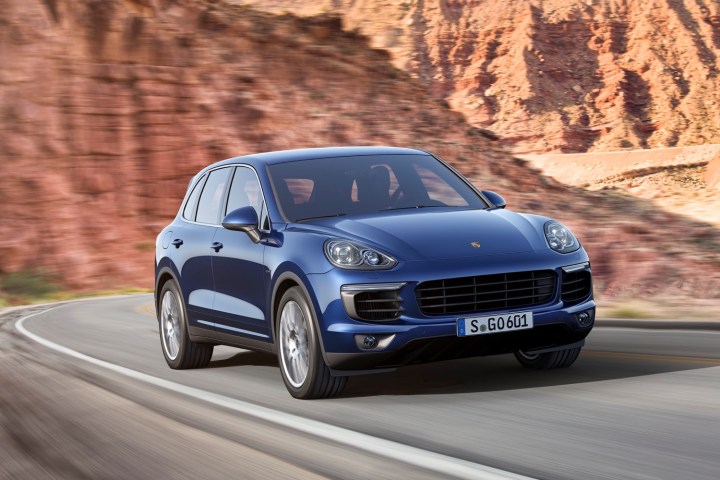
Once a fix is developed that will allow the SUVs to comply with emissions standards, Porsche may very well sell them as used vehicles, Porsche Cars North America CEO Klaus Zellmer told Automotive News (subscription required) in an interview at the recent Los Angeles Auto Show. A court still hasn’t approved a settlement for the Cayenne Diesel and Audi and VW models that use the same 3.0-liter V6 engine.
There are currently around 10,000 affected Cayenne Diesels in customer hands, plus another 1,300-1,500 still sitting on dealer lots, Zellmer said. Porsche issued the stop-sale order on November 3, 2015, and it applies to 2014-2016 models. The automaker would have to modify the vehicles in dealer inventory to meet emissions standards before they could be sold.
Regulators haven’t approved modifications for any of the affected Volkswagen Group diesel vehicles, though. A settlement for VW and Audi models with 2.0-liter engines approved in October gives owners the choice to sell their cars back to the company, or wait for a fix to be implemented. No settlement for the Cayenne and other 3.0-liter diesels has been approved, although a similar combination of buybacks and modifications is expected.
Assuming it gets approval to sell the leftover Cayenne Diesels, Porsche will discount them in order to attract buyers, Zellmer said, noting that “there’s always a market for any car.” The vehicles have sat on dealer lots for over a year, but do have low mileage. They be represent the last chance for any buyers still wanting a VW Group diesel, as it appears unlikely that the company will start selling new ones again.
Porsche Cars North America has already unloaded an undisclosed number of Cayenne Diesels originally allocated to the United States, according to Automotive News. In the spring, Zellmer said there were diesels in U.S. ports and elsewhere that would have to be dealt with, but those cars were reportedly sent back to Germany.


